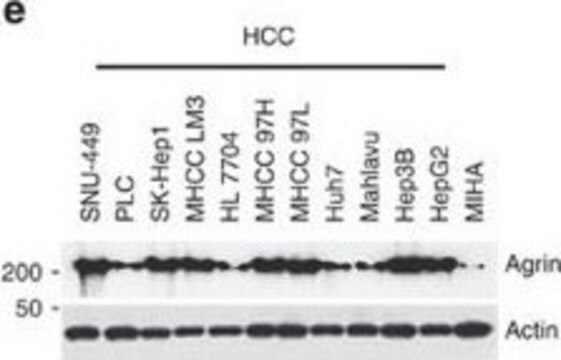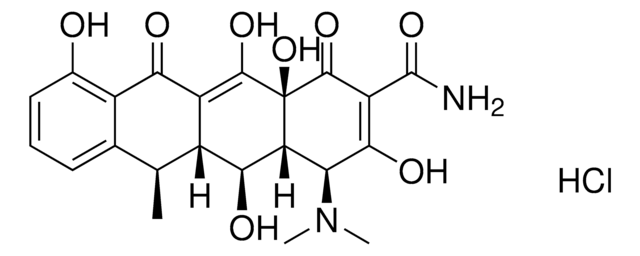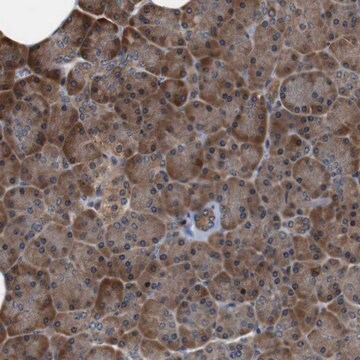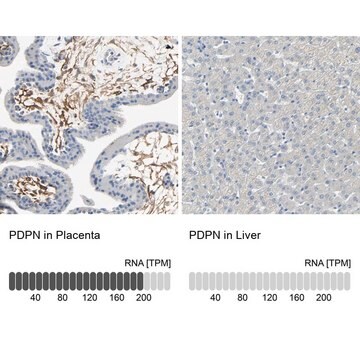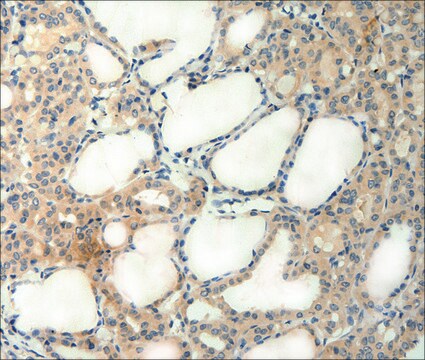SAE0095
Agrin Human
Recombinant, cell culture tested, expressed in HEK 293 cells
Synonym(s):
AGRN, Proteoglycan
Sign Into View Organizational & Contract Pricing
All Photos(2)
About This Item
UNSPSC Code:
12352202
NACRES:
NA.77
Recommended Products
recombinant
expressed in HEK 293 cells
Assay
≥95% (SDS-PAGE)
form
lyophilized powder
potency
attachment assay, measured by the ability of the immobilized agrin to support the adhesion of PC12 cells
technique(s)
cell culture | mammalian: suitable
suitability
endotoxin tested
shipped in
ambient
storage temp.
−20°C
General description
Agrin C-terminal human recombinant is expressed in human HEK 293 cells as a glycoprotein with a calculated molecular mass of 87 kDa (amino acids Ala1260-Pro2045, with an N-terminal His tag). The DTT-reduced protein migrates as a ∼100 kDa polypeptide on SDS-PAGE due to glycosylation. This protein is manufactured in human cells, with no serum. The human cells expression system allows human-like glycosylation and folding, and often supports higher bioactivity of the protein.
Biochem/physiol Actions
Agrin is a large extracellular heparan sulfate proteoglycan that is involved in the formation of the neuromuscular junction.
Agrin triggers the aggregation of acetylcholine receptors via the muscle-specific kinase (MuSK) and the low-density lipoprotein receptor-related protein 4 (Lrp4) receptor complex.
Agrin is required for the full regenerative capacity of neonatal mouse hearts.
Recombinant agrin has been shown in vitro to promote cardiomyocyte proliferation, as studied in mouse-induced and human-induced pluripotent stem cells. Recombinant agrin has been shown in vivo to promote cardiac regeneration, after induction of myocardial infarction in adult mice.
Agrin triggers the aggregation of acetylcholine receptors via the muscle-specific kinase (MuSK) and the low-density lipoprotein receptor-related protein 4 (Lrp4) receptor complex.
Agrin is required for the full regenerative capacity of neonatal mouse hearts.
Recombinant agrin has been shown in vitro to promote cardiomyocyte proliferation, as studied in mouse-induced and human-induced pluripotent stem cells. Recombinant agrin has been shown in vivo to promote cardiac regeneration, after induction of myocardial infarction in adult mice.
Storage Class Code
11 - Combustible Solids
WGK
WGK 2
Choose from one of the most recent versions:
Certificates of Analysis (COA)
Lot/Batch Number
Don't see the Right Version?
If you require a particular version, you can look up a specific certificate by the Lot or Batch number.
Already Own This Product?
Find documentation for the products that you have recently purchased in the Document Library.
Xiu-Qing Fu et al.
Cell discovery, 6, 9-9 (2020-03-07)
During the development of mammalian neuromuscular junction (NMJ), the original supernumerary axon inputs are gradually eliminated, finally leaving each muscle fiber innervated by a single axon terminal. However, the molecular cues that mediate the elimination of redundant axon inputs remain
Our team of scientists has experience in all areas of research including Life Science, Material Science, Chemical Synthesis, Chromatography, Analytical and many others.
Contact Technical Service



